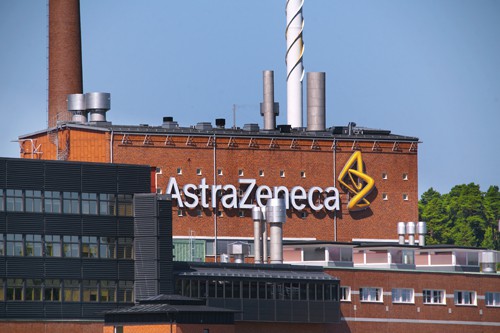
The FDA has approved AstraZeneca’s checkpoint inhibitor Imfinzi in combination with chemotherapy as a front-line treatment for extensive-stage small cell lung cancer (ES-SCLC) after a priority review.
The green light makes Imfinzi (durvalumab) the first PD-1/PD-L1 inhibitor to challenge Roche’s Tecentriq (atezolizumab) in ES-SCLC, which became the first checkpoint inhibitor to be approved for this highly aggressive form of lung cancer last year.
Tecentriq sales rocketed to almost $2bn last year, with the ES-SCLC approval a driver for that along with increased use of the drug in non-small cell lung cancer (NSCLC) – which is more common than SCLC – as well as bladder cancer and triple-negative breast cancer.
AZ reckons Imfinzi has an advantage over Tecentriq in ES-SCLC because its FDA-approved label covers use of the drug alongside etoposide and a choice of carboplatin or cisplatin chemotherapy, showing a 27% improvement in survival with all three drugs in the CASPIAN study.
Tecentriq’s US approval only covers etoposide and carboplatin, based on the IMpower133 trial, but of course oncologists might still elect to give the drug off-label with cisplatin. AZ also claims to have stronger response duration data with its drug.
Either way, a broader treatment choice is good news for patients – the five-year survival rate with SCLC is as low as 6%, with two-thirds of patients having advanced disease at the time of diagnosis.
A decision on first-line ES-SCLC is due in Europe and Japan before year-end, and the drug has already been approved for this indication in Singapore. A regulatory filing is also due in China later in 2020.
Imfinzi is also gaining ground quickly in the market, adding almost $1.5bn to AZ’s top-line last year thanks mainly to its use as a maintenance therapy in NSCLC patients whose tumours are not able to be surgically removed, and whose cancer has not progressed after treatment with chemo and radiation therapy.
In ES-SCLC, additional heavyweight competition could be on the way from Merck & Co/MSD’s top-selling checkpoint inhibitor Keytruda (pembrolizumab), which already dominates the NSCLC immunotherapy market.
Keytruda already has approval for third-line SCLC treatment after the failure of chemotherapy and has a phase 3 trial as a first-line treatment nearing completion.
CASPIAN wasn’t all positive for AZ however, as a combination arm looking at Imfinzi with experimental CTLA4 inhibitor tremelimumab and chemo – reported earlier this month – failed to show any benefit over chemo alone.




